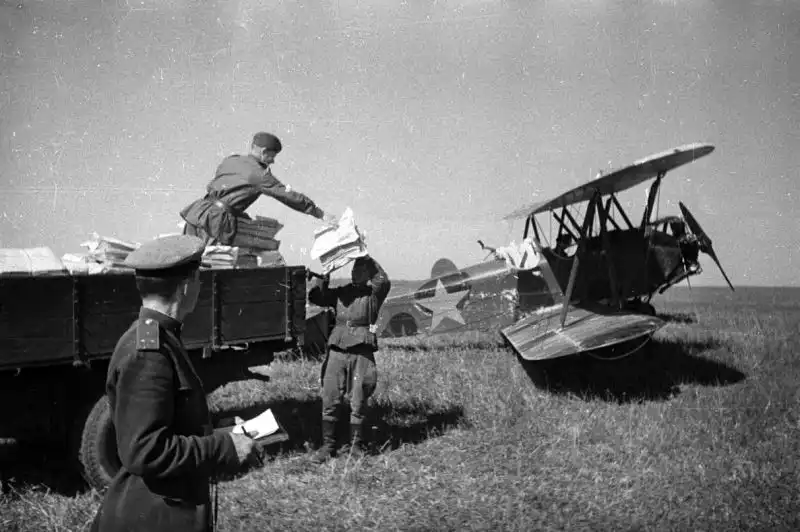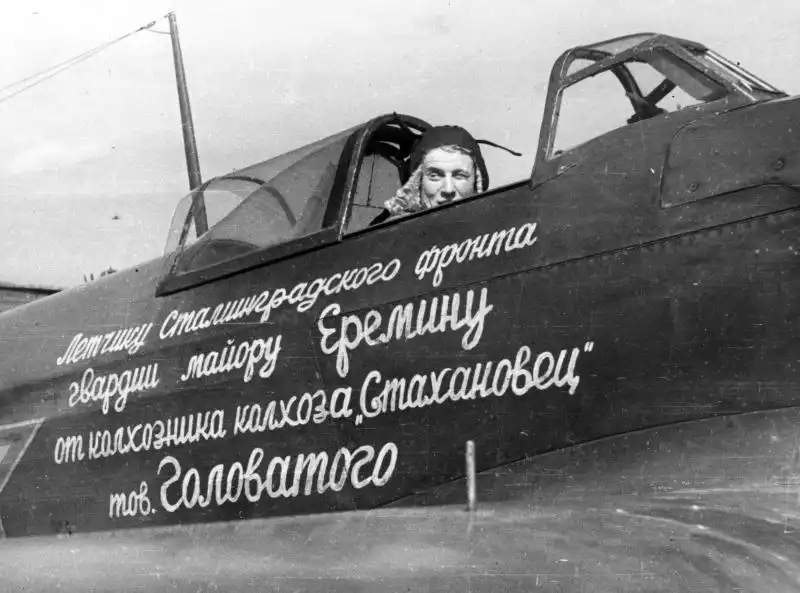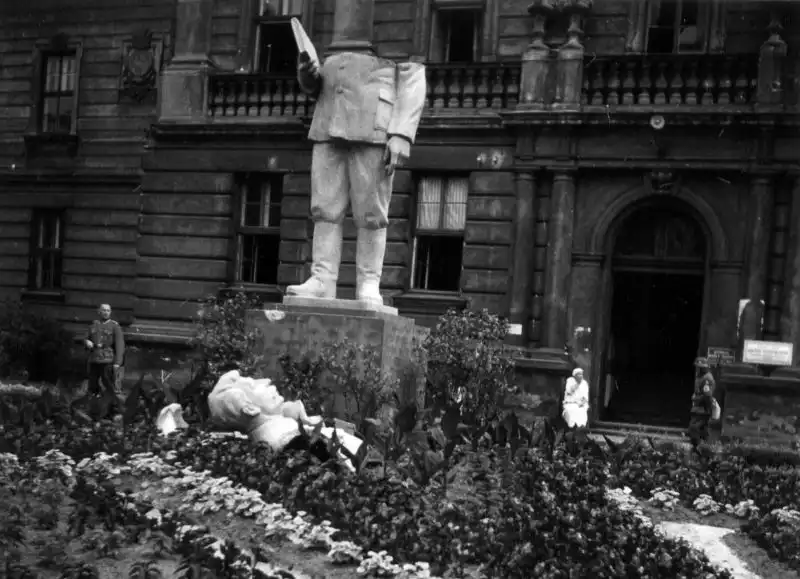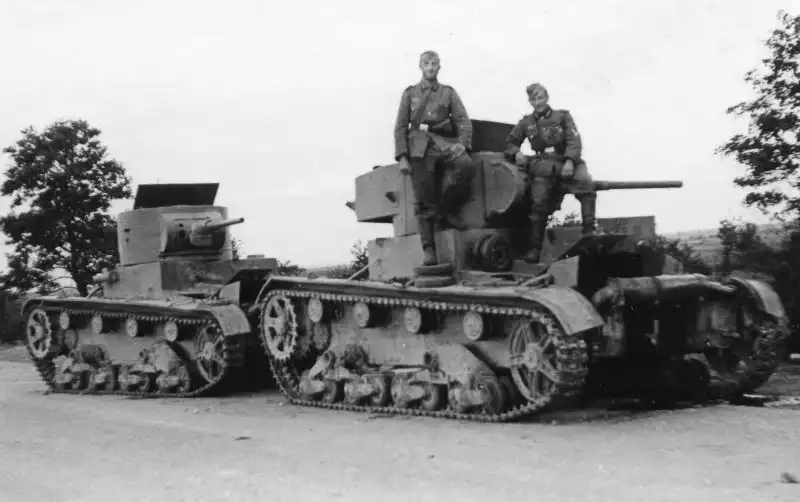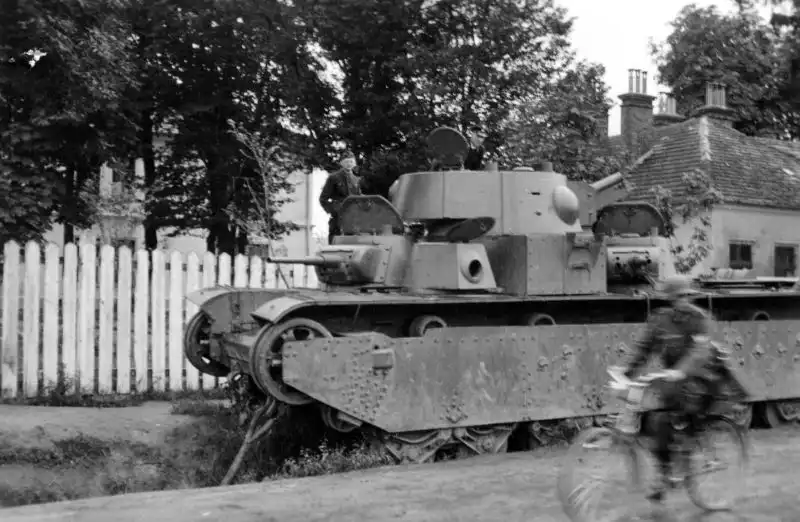German Soldiers Inspect Destroyed Soviet T-26 Light Tank, Summer 1941
September 27, 2025 - Reading time: 4 minutes
Three German soldiers examine a destroyed Soviet T-26 light tank with conical turret on a roadside during Operation Barbarossa, summer 1941.
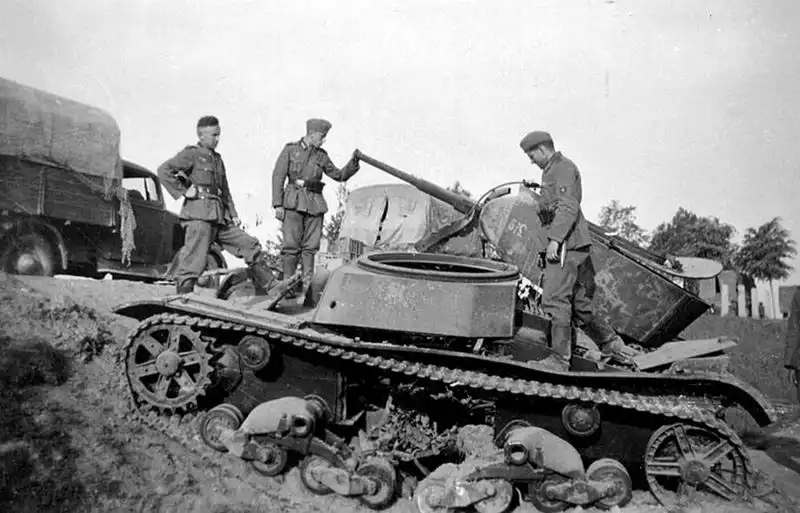
This World War II photograph shows three German soldiers inspecting a destroyed Soviet T-26 light tank on the roadside during the summer of 1941, in the early phase of Operation Barbarossa. The tank is a 1938 production model, recognizable by its conical turret, which replaced the earlier cylindrical design for improved protection.
The T-26 in 1941
The T-26 was one of the most numerous tanks in the Red Army at the outbreak of the war, with over 10,000 units produced in the 1930s. It was originally based on the British Vickers 6-Ton design but adapted and mass-produced in the USSR. By 1941, however, the T-26 was largely obsolete: its thin armor (15–20 mm) and relatively low speed left it highly vulnerable to German anti-tank guns and Panzer III and IV tanks.
Destruction and Abandonment
The tank in this photo appears to have been completely destroyed, likely by artillery fire or a direct hit from a German anti-tank weapon. Such scenes were common during the rapid German advance in the summer of 1941, when thousands of T-26 tanks were lost—often burned out, immobilized, or left behind in encirclements.
Symbol of Red Army Losses
The wreck of this T-26 symbolizes the heavy losses suffered by Soviet armored units in the opening months of the war. Despite being outdated, these tanks and their crews fought desperately to slow the German advance, often at enormous cost. Their sacrifice bought precious time for the Soviet Union to mobilize and field more modern designs such as the T-34 and KV-1.
Technical photo data:
📍 Location: USSR
📅 Date: Summer 1941
📝 Event: Operation Barbarossa, destroyed Soviet T-26 tank inspected by German soldiers
📷 Author: Unknown German military photographer
Category
Search
Categories
- Unidentified WWII Photos (12)
- World War II Photos 1937 (1)
- World War II Photos 1938 (1)
- World War II Photos 1939 (3)
- World War II Photos 1940 (5)
- World War II Photos 1941 (103)
- World War II Photos 1942 (59)
- World War II Photos 1943 (52)
- World War II Photos 1944 (77)
- World War II Photos 1945 (41)
- WWII and Postwar Photos 1946 (1)

